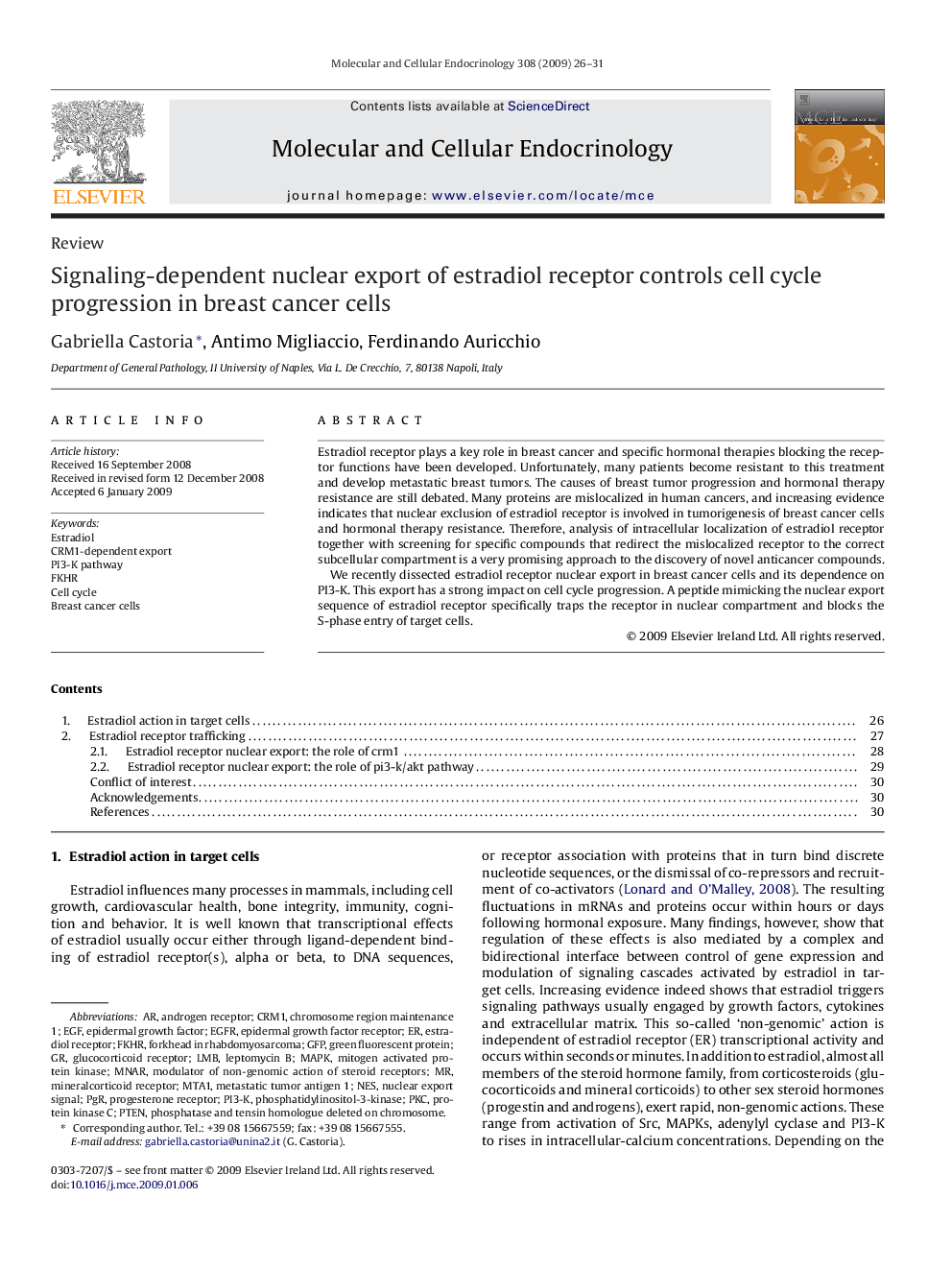| Article ID | Journal | Published Year | Pages | File Type |
|---|---|---|---|---|
| 2197283 | Molecular and Cellular Endocrinology | 2009 | 6 Pages |
Estradiol receptor plays a key role in breast cancer and specific hormonal therapies blocking the receptor functions have been developed. Unfortunately, many patients become resistant to this treatment and develop metastatic breast tumors. The causes of breast tumor progression and hormonal therapy resistance are still debated. Many proteins are mislocalized in human cancers, and increasing evidence indicates that nuclear exclusion of estradiol receptor is involved in tumorigenesis of breast cancer cells and hormonal therapy resistance. Therefore, analysis of intracellular localization of estradiol receptor together with screening for specific compounds that redirect the mislocalized receptor to the correct subcellular compartment is a very promising approach to the discovery of novel anticancer compounds.We recently dissected estradiol receptor nuclear export in breast cancer cells and its dependence on PI3-K. This export has a strong impact on cell cycle progression. A peptide mimicking the nuclear export sequence of estradiol receptor specifically traps the receptor in nuclear compartment and blocks the S-phase entry of target cells.
